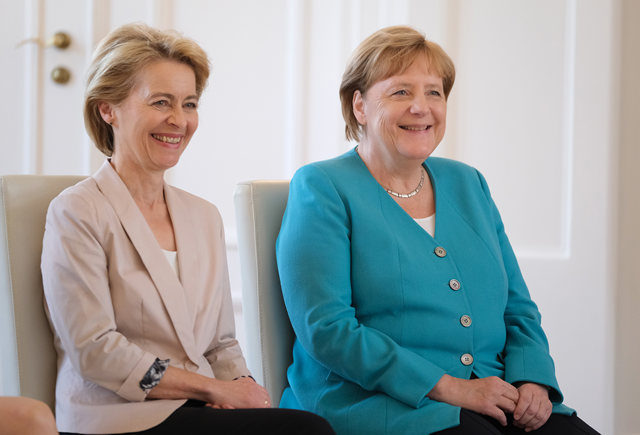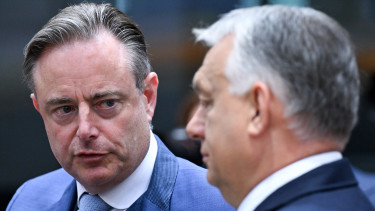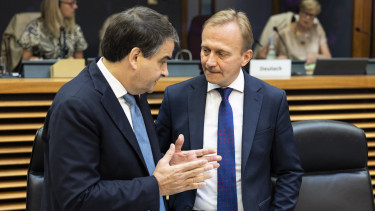New EC president appeases Hungary, Poland
The President-elect of the European Commission needed votes from the Hungarian, Polish and Italian governing parties to win the vote on Tuesday, which may play a part on her placatory signals sent to Hungary, but her view of these issues may just be different from that of her predecessor, Jean-Claude Juncker, or the current European Commission.
"The migration issue will be with us for decades," von der Leyen told the five media, and EU countries such as Poland or Hungary, who have rebelled against migrant-sharing quotas with Greece and Italy, ought to be "listened to", she said.
Poland has already welcomed 1.5 million Ukrainians, von der Leyen pointed out. "Ukraine is a country with a hybrid war, for years, in which people are still dying. We cannot ignore it," she explained.
The EU "must reform Dublin", she said, referring to European asylum laws, which oblige the first member state where an asylum seeker lands to take care of them. But von der Leyen added, in a wink to Warsaw and Budapest, that "fair burden-sharing" could mean "perhaps each country in a differentiated aspect".
We must all learn that full rule of law is always our goal, but nobody's perfect,
she said regarding Poland and Hungary, which are under an EU sanctions procedure for abuse of rule of law at home, promising to take the heat out of the political clash. "In central and eastern European countries, many feel that they're not fully accepted, and if we guide debates as sharply as we have done, it contributes to countries and peoples believing that they are being targeted as a whole," the German politician said.A new commission proposal to do yearly rule of law reports on all 28 EU states would "avoid giving the impression that part of Europe fundamentally regards the other critically," she said.
Meanwhile, the EU Commission's vice-president for rule of law, Frans Timmermans, said on Thursday he has "no doubt" the new commission under Ursula von der Leyen will be just as tough on the breaches of rule of law as the current EU executive.

Reading between the lines, I do not see an unconditionally objective approach to issues regarding the rule of law. I see a much more rational and balanced approach in Ursula von der Leyen's policy, one that may build on equality and cooperation between member states,
newly appointed Hungarian Minister of Justice Judit Varga said on Thursday following a meeting of EU ministers in Brussels.At the session, representatives from member states began the debate on the EU's 2021-2027 budget, which the Finnish presidency would like to see completed before the end of the year. The draft proposal continues to include a clause where EU payments could be suspended or interrupted in case the EC finds problems regarding the rule of law.
The Hungarian government does not support this, Varga said. Tying specific financial sanctions to a vague and intangible concept like the rule of law gives cause for concern, she added, as this could affect not just one member state but all beneficiaries. Unless this condition is changed, "we will not be interested in a speedy resolution," Varga said.
Cover photo: Sean Gallup/Getty Images
















